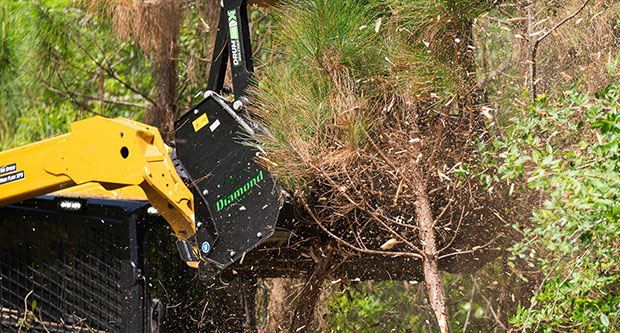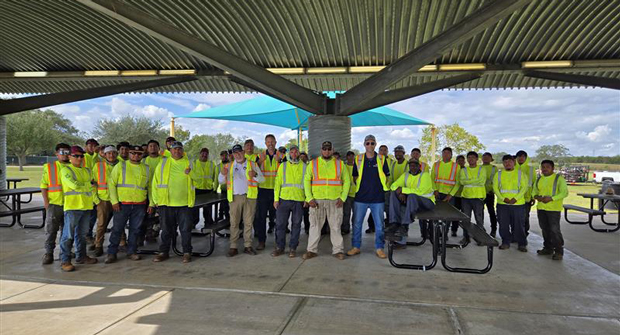Experts at Diamond Mowers advise that mulching teeth face extreme wear from processing wood, brush and even rocks in some cases. The company stated its current product range exemplifies a wider industry shift toward tooth customization that addresses demands for speed, durability and adaptability, showcasing proper uses and applications that can be performed with these landscaping tools.
Diamond Mowers’ Edge Hardened Steel Teeth and Four-Point Hardened Steel Teeth, for example, are both engineered for use in soft-to-medium soils with limited ground contact, focusing on delivering a cleaner mulch and maintaining sharpened edges. For higher-volume work in softer environments, Twin Chisel Planer Teeth, with their heat-treated steel and twin-tip geometry, offer increased resilience and allow for time-saving on-site sharpening.
In abrasive, rocky conditions, operators often select carbide options. Twin Maul Carbide Teeth and Armored Maul Carbide Teeth are built specifically for extreme durability and minimal maintenance, factors critical for rental fleets or remote work areas where service access is limited. These kinds of teeth can last three to five times longer than steel counterparts, according to manufacturer data.
The increased focus on productivity has driven manufacturers to introduce features such as interchangeable teeth and hybrid drum configurations. These designs allow mixing and matching of tooth types, such as combining carbide teeth on the drum’s outer edges with steel teeth in the center; enabling crews to adapt to changing field conditions.
Ultimately, selecting the optimal mulching teeth goes beyond reducing wear; it is about achieving project deadlines, meeting safety standards and managing operating costs over the equipment’s lifecycle. As new vegetation management challenges arise; from invasive species to post-disaster recovery, equipment selection will remain a key competitive factor.


